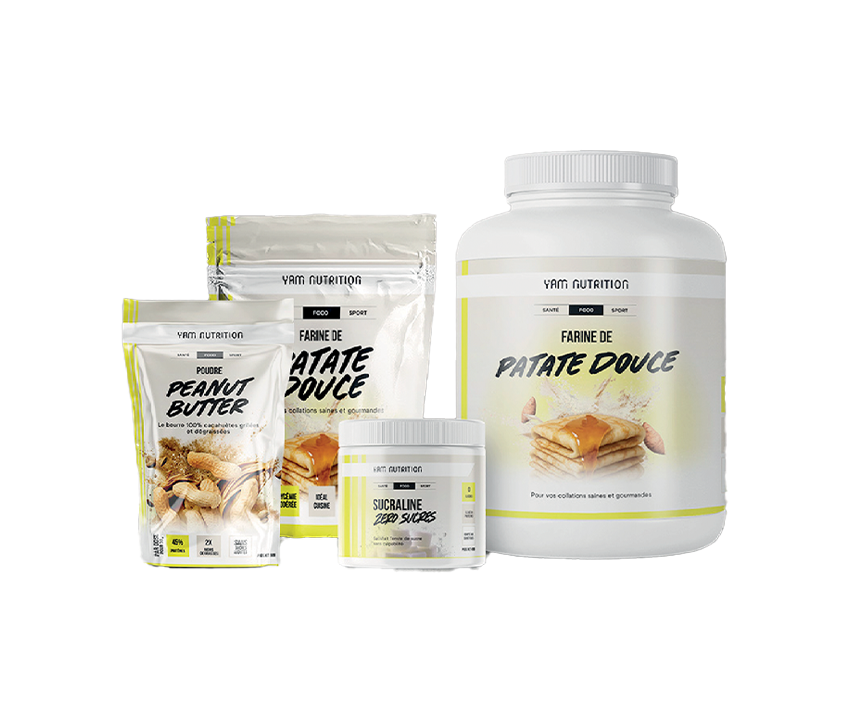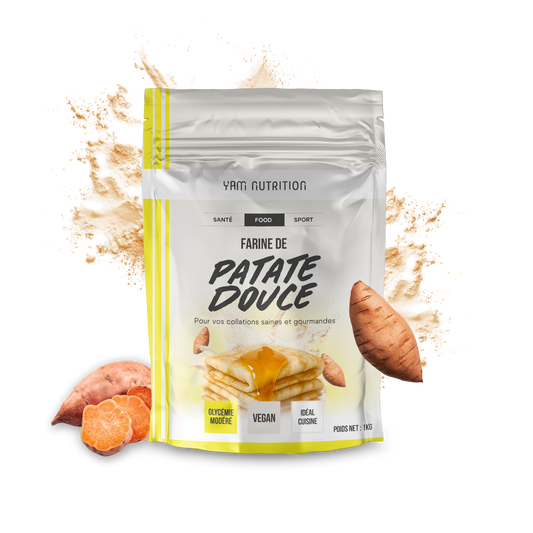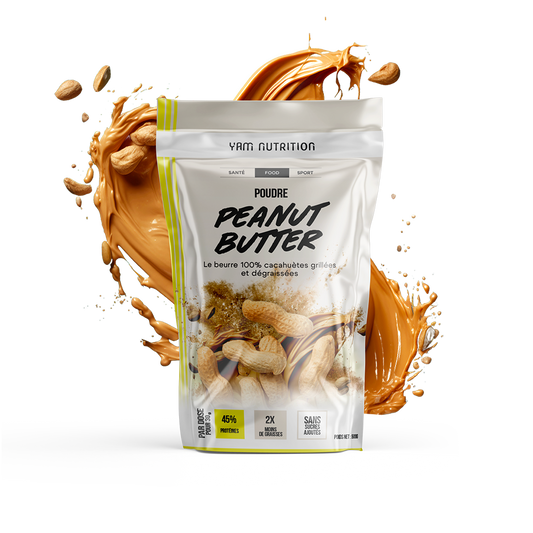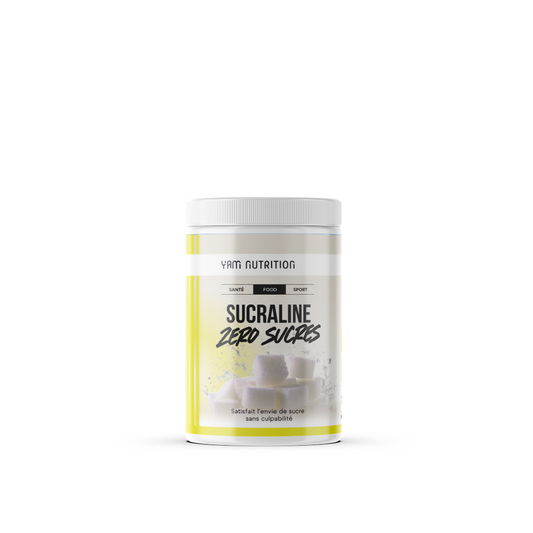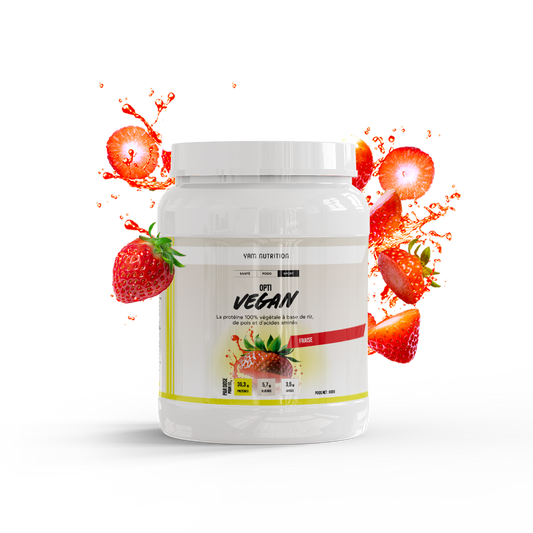The nutritional benefits of sweet potatoes

YAM Nutrition has been offering you its sweet potatoes for some time now, as well as flour made with this amazing vegetable. Today, however, the sweet potato has lost some of its exoticism, but it remains very trendy on our plates!
For your healthy and delicious snacks Peanut butter made with 100% roasted peanuts 100% plant-based protein made from rice, peas and amino acids
Sweet potato flour
Sale price
From 19,90 €
Peanut Butter Powder
Sale price
24,90 €
Opti-Vegan
Sale price
From 37,90 €
As you know, sweet potatoes are native to South America. Naturally, we eat the tubers of the sweet potato (the roots) and not their leaves or flowers. We eat the “potatoes,” a term sometimes misused to refer to potatoes. However, these two vegetables are clearly different from a purely botanical point of view. In this regard, sweet potatoes often have a more varied flesh color than potatoes. Nutritionally, however, sweet potatoes and potatoes have similarities and differences, sometimes to the advantage of the sweet potato. The slightly sweet taste of the sweet potato sometimes gives it a quick comparison with the apple, but its texture is completely different. Still sometimes considered an exotic vegetable, the sweet potato has been cultivated in France since the mid-18th century. Only the current climate does not favor its large-scale cultivation.
What are the nutritional values of sweet potatoes?
Calorie-wise, sweet potatoes contain between 86 and 90 calories per 100 grams; a fairly average value. They contain 20 grams of carbohydrates , mainly in the form of starch. It is a complex carbohydrate composed of glucose chains. In fact, the starch reserves in sweet potatoes could be compared to muscle glycogen reserves in humans. It should also be noted that it contains about 4 grams of sugar. Its sugar content fat is insignificant, as is its protein content, which is particularly low. Like the potato, the sweet potato contains a lot of water, about 77%. The sweet potato is slightly richer in fiber than the potato. This is why the Glycemic Index of this vegetable is lower, around 70 compared to 80 to 110 for potatoes. Sweet potatoes can therefore be consumed by diabetics, due to their moderate Glycemic Index. Its qualities make it an energy vegetable muscular par excellence.
Sweet potatoes provide minerals and B vitamins as well as a high amount of beta-carotene
It is also an optimal source of potassium with more than 330 mg per 100 grams. As you know, the potassium is a mineral essential to the health of the body. It is essential for muscle and heart contraction. Potassium is stored inside our cells. It is in balance with sodium. In sports, it is an important mineral to ensure muscle contractions. However, sweet potatoes provide relatively little magnesium (around 22 mg/100g). The vegetable is also a source of phosphorus (around 40mg) and sodium (around 30mg/100g). On the other hand, it provides enough zinc (260 mg on average), copper and manganese. The latter contributes to energy metabolism, bone maintenance and formation of connective tissues . The other trace elements are provided in relatively insignificant quantities.
Sweet potatoes contain vitamins, especially B vitamins, but in small quantities. The exception is beta-carotene, provitamin A (more than 10,000 mcg/100g). Thus, 100 grams of this delicious tuber provides approximately 210% of the NRV ( Nutrient Reference Value ) in vitamin A. As you know, vitamin A is essential for vision and contributes to iron metabolism and the functioning of the immune system. It also contains a significant amount of vitamin B6 (approximately 16% of the NRVs) and 16 mg of vitamin C on average.
Sweet potatoes, a healthy vegetable for sedentary people and athletes
A healthy vegetable that releases a slightly sweet taste when cooked (cooking sweet potatoes results in the formation of mannose, a sugar), these tubers are appreciated by sedentary people as well as athletes. Indeed, its moderately rapid-release carbohydrate content as well as its richness in potassium, vitamins A, C and B6 are completely compatible with sports performance and athletic.
Eric MALLET
Spécialiste en Nutrition Sportive
